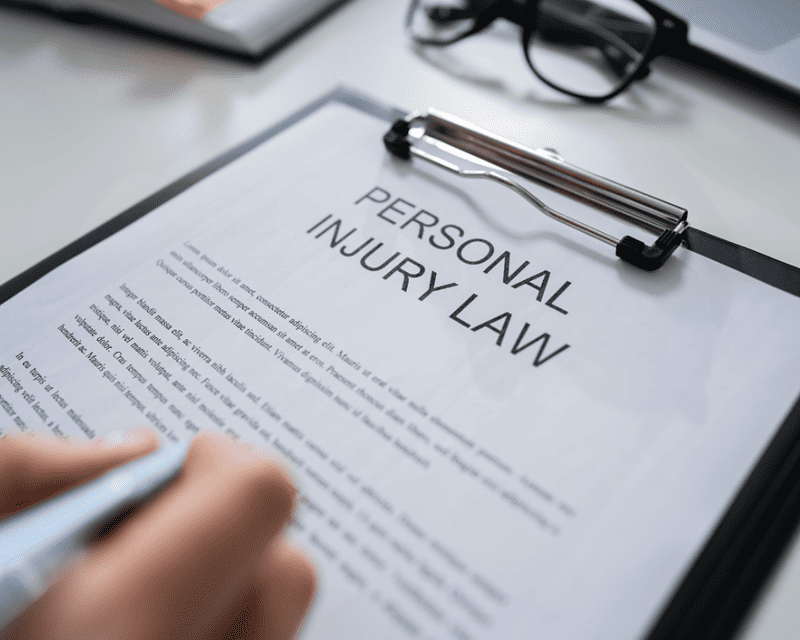Personal injury law focuses on compensating individuals injured due to the negligence or wrongdoing of others. After an accident, you will need treatment and an overview of the compensation process. This guide aims to provide accident victims with a comprehensive overview of personal injury law. It includes the key concepts, legal processes, and steps to protect your rights and seek fair compensation.
Key Concepts in Personal Injury Law

Negligence
Negligence is a central concept in personal injury law. It focuses on the absence of attention to other people’s well-being. For instance, if employers fail to ensure that the working conditions are safe for employees, they can be considered negligent. The employer becomes liable if an employee gets injured in such a workplace. This section can be confusing because every case is different. Therefore, consult experienced personal injury lawyers to get the necessary details for your case.
Damages
This refers to the emotional or physical destruction resulting from an accident. An example of physical damage is bodily injuries or destruction of property. The extent of the physical injury causes emotional damage. Severe injuries can make it challenging for individuals to carry on with their daily activities.
Statute of Limitation
This is the deadline when an individual can file a personal injury claim. The period varies from one jurisdiction to another. For example, filing a personal injury claim in Texas must be done within two years. Hence, people should seek immediate legal advice when an accident occurs. You don’t want to miss out on the benefits because it took you a long time to file a claim.
Legal Processes and Steps for Accident Victims

Seek Medical Attention
Health and well-being should be your top priority after an accident. Seek immediate medical attention for any injuries sustained, even minor ones. Prompt medical documentation will ensure your well-being and serve as important evidence for your claim. Once the compensation claim succeeds, you can use the money to offset the incurred bills.
Preserve Evidence
Preserve any evidence related to the accident and your injuries. This may include photographs, witness statements, medical records, accident reports, and any other relevant documentation. This evidence will play a crucial role in supporting your claim and establishing the responsible party’s negligence. Lawyers understand the best evidence for every case.
Consult with an Attorney
It is highly recommended to consult with a personal injury attorney. An experienced lawyer can provide valuable legal advice, evaluate your claim’s strength, negotiate with insurance companies, and represent your interests in court if necessary. When insurance companies notice that you have legal representation, they are likely to settle for a fair amount. This enables them to avoid the scandals associated with lawsuits.
File an Insurance Claim
Notify the responsible party’s insurance company about the accident and your intent to file a claim. Be cautious when dealing with insurance adjusters, and avoid providing recorded statements without consulting your attorney. Insurance companies may attempt to minimize your claim, so having legal representation can help protect your rights during the negotiation process.
Negotiation and Settlement
Your attorney will work on your behalf to negotiate a fair settlement with the insurance company. This involves assessing the full extent of your damages and presenting a compelling case to support your claim. If a fair settlement cannot be reached, your attorney may advise filing a lawsuit and proceeding to trial.
Understanding personal injury law is crucial for accident victims seeking fair compensation for their injuries. This comprehensive guide has provided an overview of key concepts in personal injury law and outlined important steps to take after an accident. However, each case is unique, and consulting with a qualified personal injury attorney is essential. This enables you to navigate the legal complexities and protect your rights throughout the claims process.
